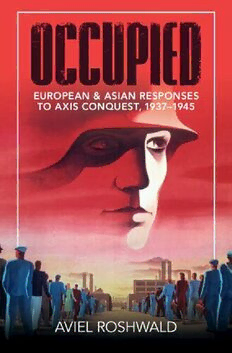
Occupied: European and Asian Responses to Axis Conquest, 1937–1945 PDF
467 Pages·2023·17.977 MB·English
Most books are stored in the elastic cloud where traffic is expensive. For this reason, we have a limit on daily download.
Preview Occupied: European and Asian Responses to Axis Conquest, 1937–1945
Description:
For most of the population of Europe and East and Southeast Asia, the most persistent and significant aspect of their experience of the Second World War was that of occupation by one or more of the Axis powers. In this ambitious and wide-ranging study, Aviel Roshwald brings us the first single-authored, comparative treatment of European and Asian responses to German and Japanese occupation during the war. He illustrates how patriotic, ethno-national, and internationalist identities were manipulated, exploited, reconstructed and reinvented as a result of the wholesale dismantling of states and redrawing of borders. Using eleven case studies from across the two continents, he examines how behavioral choices around collaboration and resistance were conditioned by existing identities or loyalties as well as by short-term cost–benefit calculations, opportunism, or coercion.
See more
The list of books you might like
Most books are stored in the elastic cloud where traffic is expensive. For this reason, we have a limit on daily download.
